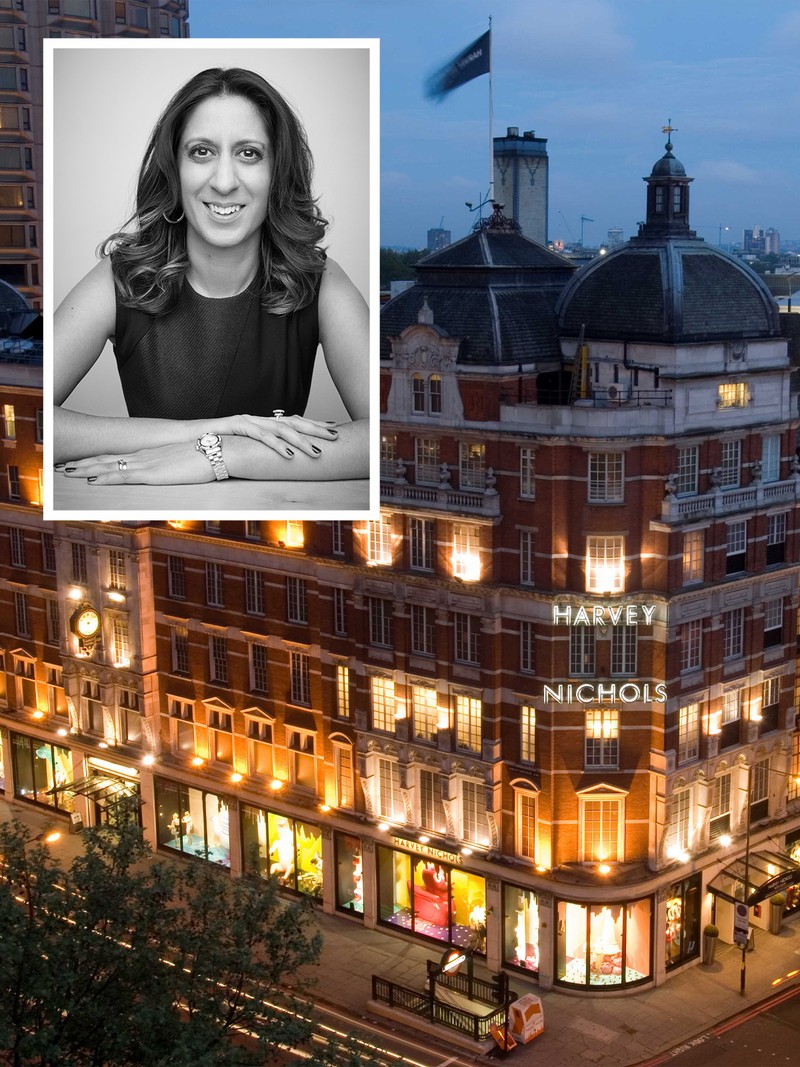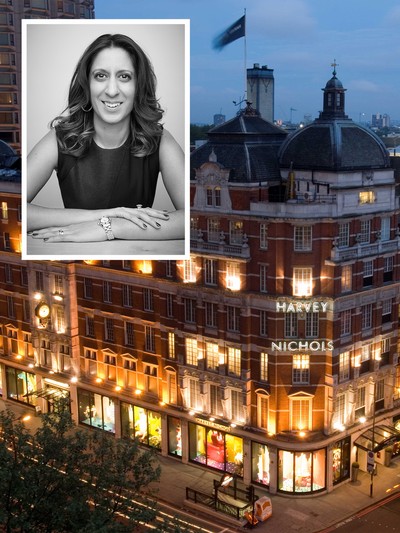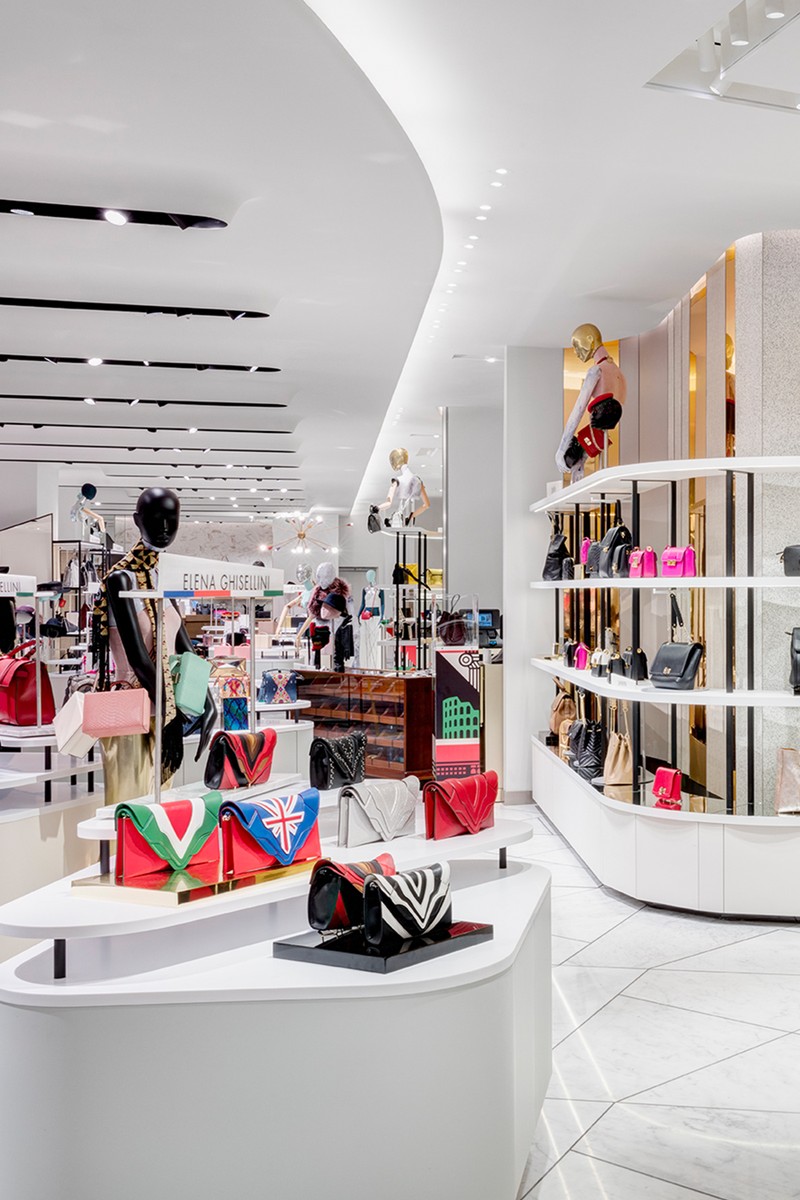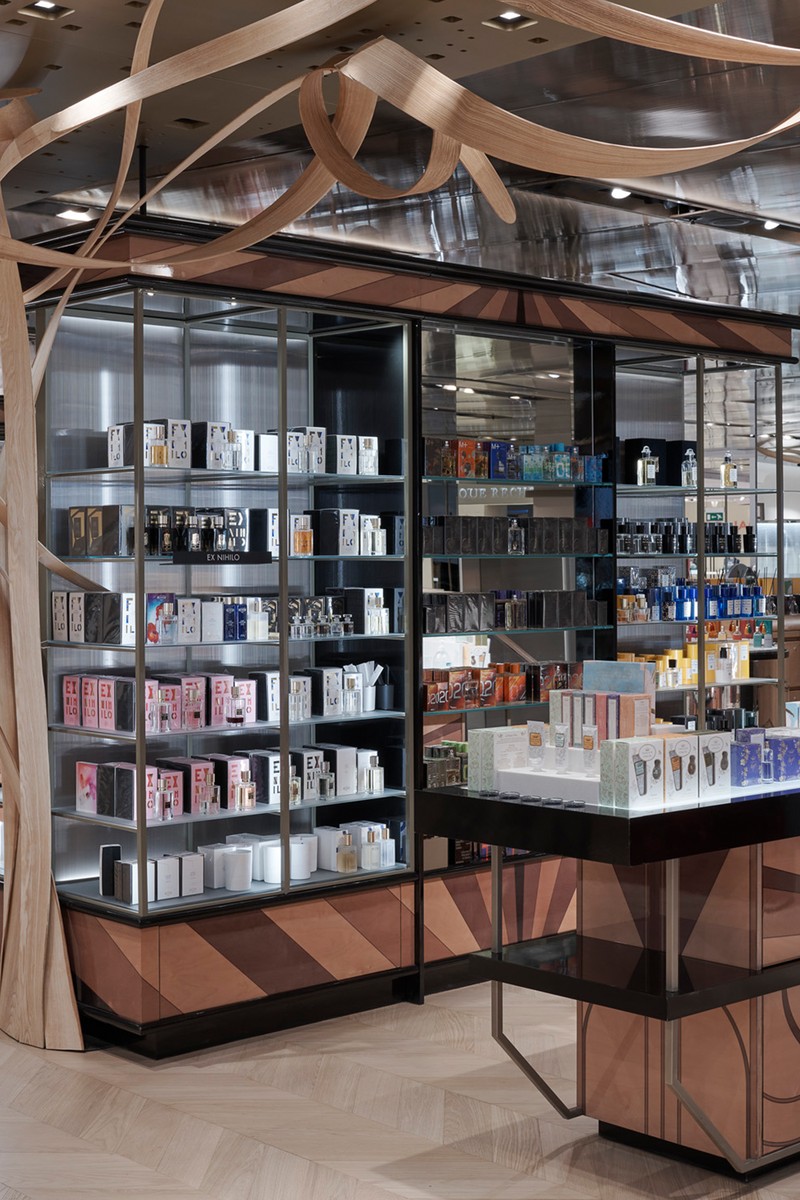

How I Made It: Manju Malhotra, CEO, Harvey Nichols
My parents came here from India in the 1960s and set up a fashion business. They had a shop just off Brick Lane in the East End before fast fashion even existed. Back then the industry was really split into three fields: high-end or luxury stores, the high street (places like M&S and Next dominated) and market stall traders. From around the age of seven I used to spend my weekends and school holidays helping out. I remember selling these ‘Frankie Says Relax’ t-shirts – we just couldn’t keep them in stock. It sowed an early seed in my mind to try and connect what was happening in pop culture with the retail consumer.
Education was so important in my house growing up. There was never any question about me going to university – it was just expected I would. I was lucky to have parents who actively encouraged that; they understood that education was the pathway to a better life, which is what had brought them to the UK in the first place. At home, English was very much the main language, which in hindsight is a bit of a shame as I’m not as fluent in my native languages as I’d like to be. Today, I’m hopeful there’s more emphasis on preserving those mother tongues.
My determination to succeed is the result of having immigrant parents. They did everything – we didn’t have cleaners or any other kind of help at home. I studied economics at university which I’d recommend. It gives you a great knowledge of business and markets – which has certainly come in useful. I trained as a chartered accountant after university and following that I joined Harvey Nichols as internal audit manager. I’d always known I didn’t want to stay in private practice as an accountant, but I can’t say joining a luxury retail business like Harvey Nichols was the plan. I just wanted to be part of a good business with a strong brand – somewhere that felt exciting to be a part of.
When I joined Harvey Nichols, it was a public company. In my role of internal audit manager, I reported directly to the CFO. Having that kind of access to him and the board of directors so quickly was pivotal. Harvey Nichols was a big brand, but the team was relatively small, which meant it was open to letting people grow and gather a significant level of experience quite quickly. In the three and half years I spent in that role I was able to work my way around the whole business, which helped me acquire lot of knowledge about the entire operation.
Willingness and enthusiasm are two critical pillars for success. I say that as someone who has always made the most of both of those qualities – and I don’t doubt they’ve helped me get to where I am today. I was always willing to put my hand up for tasks that weren’t a part of my core responsibilities – and given my understanding of the business, people were happy to have me involved with certain projects.

I was never someone who set specific professional goals. I never wrote CEO on a piece of paper. Instead, I just focused on growing, expanding my knowledge and putting myself forward for things. My first move from internal audit manager was to group accountant (a bit of a sideways move really) and then financial controller. That was 2003 and I’d been there five years at this point. The company was also de-listing and undergoing a restructuring, so the role of financial director was changing. It meant that I spent quite a bit of time reporting directly to the CEO, which was great. Ultimately, he became a bit of a mentor and through him I was able to have exposure to other members of the board too.
Soon one of our connected businesses in New York needed a finance person. My work with the board had helped them build trust in me, so I was sent over there. I still had to keep an eye on things in the UK, but going there helped me grow my knowledge of an organisation with different challenges in a slightly different sector. Again, I think it was that combination of attitude and experience which contributed to being given that opportunity. When I came back in 2010, I was appointed to the board as CFO.
I also had two children around that time. My first daughter was born in 2005 and my second was born in 2012. Luckily, the structure of the business was very stable during those years – the CEO was in his post for 22 years. The private ownership also made it easier to progress in the business – in the past, being a public company, appointments and promotions would always be seen through a market lens, which maybe could have made things harder. The board would have had to be brave to appoint a woman to a senior position, but that became less of an issue.
In 2013, our CEO Joseph Wan left the business. He’d been a very traditional, financial leader and his replacement Stacey Cartwright had a very different, more personable way of working. She was maybe a bit softer round the edges – which proved to me it was possible to be clear with your messaging in a way that allows people to see your personality. It was an important stage of my development from a finance person into a businessperson. I had the right levels of support from Joseph and Stacey at the right times in my career, but they both gave it to me in very different ways.
One of Stacey’s big investment projects was the Knightsbridge store. They needed someone to lead those programmes of work and that was me. Not only did it require financial input, but you needed to be clear about the overall objectives and be able to bring people together to achieve them. Within a couple of years, Stacey moved on and, rather than bring in someone new from inside, the commercial director and I were given joint responsibility for running the business as co-chief operating officers – reporting directly to the chairman.
We worked very closely together on all aspects of the business. By that point I’d been there for 22 years and when my co-COO Daniella Rinaldi left, she’d been there for 35 – having started out on the beauty counter. Safe to say we shared a passion for and loyalty to Harvey Nichols. Co-structures are more common now; they weren’t so much then, but it made sense given our respective lengths of service.
Daniella eventually decided to pursue a different kind of work/life balance and I stayed on. About ten weeks later, I was flying solo and Covid hit. It made me realise what a good stepping-stone the co-structure had been. Daniella and I were always so intertwined in what we looked after, so it wasn’t like I’d been doing half a job and suddenly had to get to grips with the other half overnight. Had I gone straight from CFO to CEO, that might have felt like a bigger jump.
Retail isn’t the simple business it once was. It’s no longer just about buying stuff, selling stuff and telling people about it. Issues like sustainability play a much larger role in our day-to-day business. Mental health and wellbeing, having a good company culture, working on diversity and inclusion – these are all issues that stakeholders are interested in. As CEO, it’s not just my role to lead the organisation to financial profitability; it’s about being a true leader and setting the purpose and tone.
Understanding business culture is one of the most important aspects of the CEO’s job. It didn’t use to be, but the landscape has changed dramatically. Today, even if you have the right processes and governance in place, something can still come out of left field with the potential to damage the company or its brand. Even if something isn’t your fault, it can be seen as your responsibility. The speed with which you act on these things is crucial – as is your honesty and level of communication.
As a board we have more to contend with than ever before. Whereas in the past it might have been something like the recession, today it’s company culture, the war in Ukraine, the potential for a cyber-attack, inflation – there are many factors to navigate going forward. There have also been hugely significant changes within the retail industry. The most important thing is not to let different channels – whether that’s online or stores – compete. They must be complementary, and it’s our job to make both experiences as enjoyable as possible.
Effective marketing speaks to both current and future customers. Those future customers could be customers of tomorrow, next week or next year, but getting that engagement with the brand and helping them understand who we are and what we stand for is so important. It’s a dual-ended approach: communicating for awareness (for example, letting them know what might be going on in store that weekend) and for transaction (perhaps showing them someone wearing an amazing pair of Celine sunglasses which they then decide to buy). It’s also about talking to people through a multi-category lens i.e. not just letting women know what’s happening in womenswear, but also in menswear, accessories and even food and lifestyle.
If I could give my 21-year-old self any advice, it would be to focus on getting as much experience as possible. Growth is what kept me in the same business for over 20 years, but young people are often so resistant to taking on extra responsibility. Gathering experience is an investment in yourself – you might be working late or at the weekend now, but ultimately when there’s an opportunity later, you’ll have the experience to be in pole position. Don’t focus on job titles or compensation; those things will catch up in due course.
Work on your softer skills. Be interested and curious. If you’re fortunate to be passionate about what you do, this will be much easier, and you’ll be that much more determined to succeed. Lack of ego is another important trait for leadership – as is being comfortable with showing your humanity. Transparency is key in business. Get used to putting your cards on the table in a professional way and be open about what you’re trying to achieve. That way you’ll be able to find the middle ground that suits everyone.
Finally, always ask for feedback. Sometimes, the way you think your work or personality comes across isn’t how others read you, so it can be very illuminating – especially as a business leader or a senior member of staff – to hear what people really think and perhaps identify areas for improvement. It might be best to start with people you’ve worked with for a long time, who really understand you and aren’t afraid to be honest.
Visit HarveyNichols.com
DISCLAIMER: We endeavour to always credit the correct original source of every image we use. If you think a credit may be incorrect, please contact us at info@sheerluxe.com.

/https%3A%2F%2Fsw18.sheerluxe.com%2Fsites%2Fsheerluxe%2Ffiles%2Farticles%2F2023%2F07%2Fharvey-nichols-edinburgh-accessories-hall_0.png?itok=gJ5CjL7Z)



